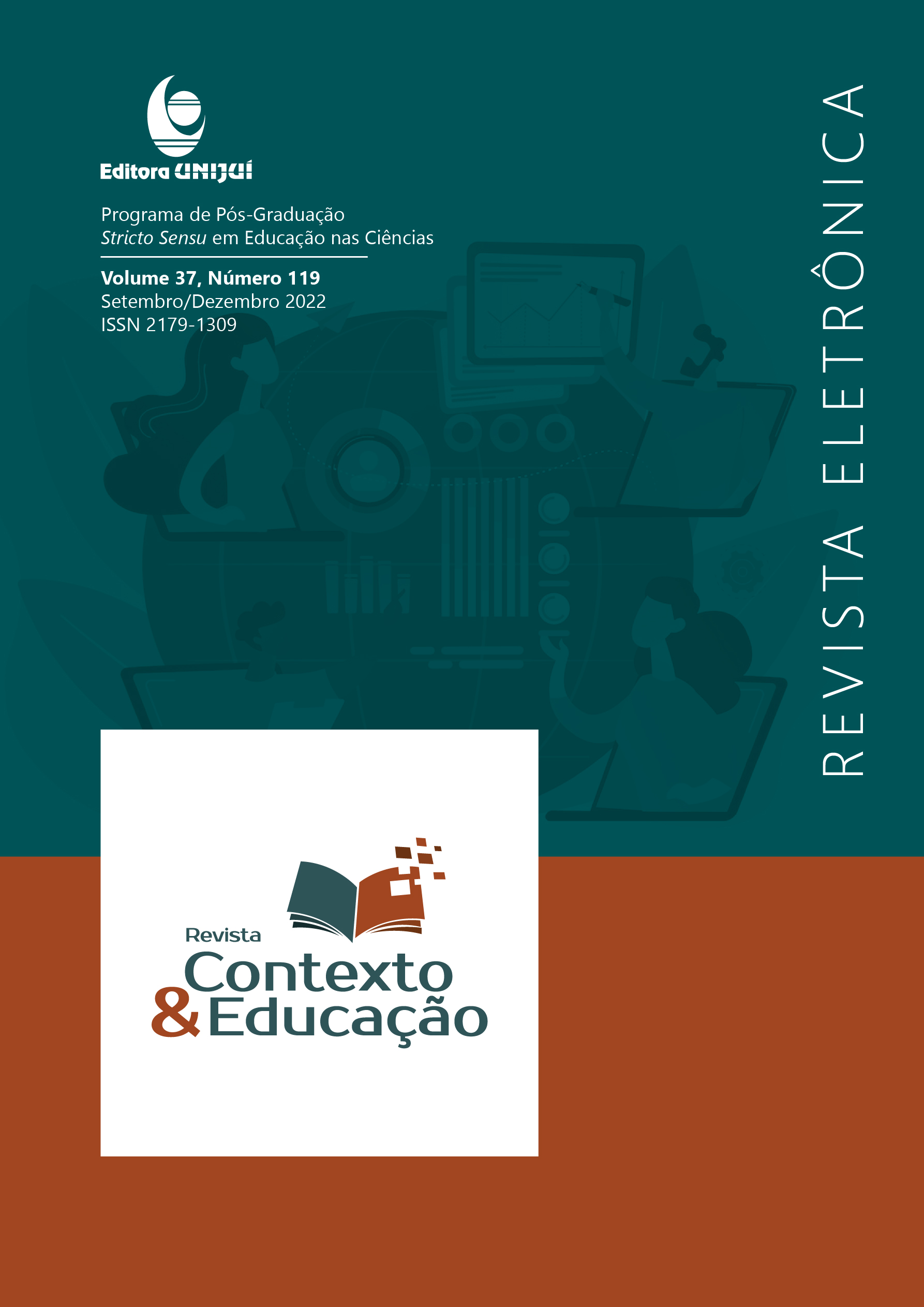Teaching practices in the pandemic: a view from bioecological development
DOI:
https://doi.org/10.21527/2179-1309.2022.119.12114Keywords:
Experienced teachers, Pandemic, Remote learningAbstract
This paper focuses on the difficulties faced in remote education by four experienced teachers from the Elementary School and the facilitating mechanisms used by them during the coronavirus pandemic. In addition to being teachers, the participants simultaneously acted as mentors for beginning teachers in the Hybrid Mentoring Program (PHM). The data consists in responses collected in an online questionnaire, containing questions about the teaching performance in 2020. The analysis is based on the Bioecological Theory of Human Development (BRONFENBRENNER, 1994). The interrelationships, influences and impacts caused by micro-, meso-, exo-, macro- and chronosystems in the current context were considered in this study. Data analysis indicates that the participants faced difficulties, such as: lack of infrastructure; transpose knowledge about teaching adults how to teach into teaching children remotely; preparation of planning and evaluation; establishing relationships with students and their families; lack or delay in receiving directions from the school. The on-line networks, present both in the PHM microsystem and the school microsystem, were highlighted as an aid mechanism to the difficulties. In both contexts, the participants had the opportunity to exchange ideas and experiences for the construction of new learning about remote learning.
Downloads
Published
How to Cite
Issue
Section
License
Copyright (c) 2021 Revista Contexto & Educação

This work is licensed under a Creative Commons Attribution 4.0 International License.
By publishing in Revista Contexto & Educação, authors agree to the following terms:
All works are published under the Creative Commons Attribution 4.0 International License (CC BY 4.0), which allows:
Sharing — to copy and redistribute the material in any medium or format;
Adaptation — to remix, transform, and build upon the material for any purpose, even commercially.
These permissions are irrevocable, provided that the following terms are respected:
Attribution — authors must be properly credited, a link to the license must be provided, and any changes made must be indicated.
No additional restrictions — no legal or technological measures may be applied that legally restrict others from doing anything the license permits.
Notices:
The license does not apply to elements that are in the public domain or covered by legal exceptions.
The license does not grant all necessary rights for specific uses (e.g., image rights, privacy, or moral rights).
The journal is not responsible for the opinions expressed in the articles, which are the sole responsibility of the authors. The Editor, with the support of the Editorial Board, reserves the right to suggest or request modifications when necessary.
Only original scientific articles presenting research results of interest that have not been previously published or simultaneously submitted to another journal with the same purpose will be accepted.
Mentions of trademarks or specific products are intended solely for identification purposes and do not imply any promotional relationship by the authors or the journal.
License Agreement (for articles published from October 2025): Authors retain the copyright to their article and grant Revista Contexto & Educação the right of first publication.


